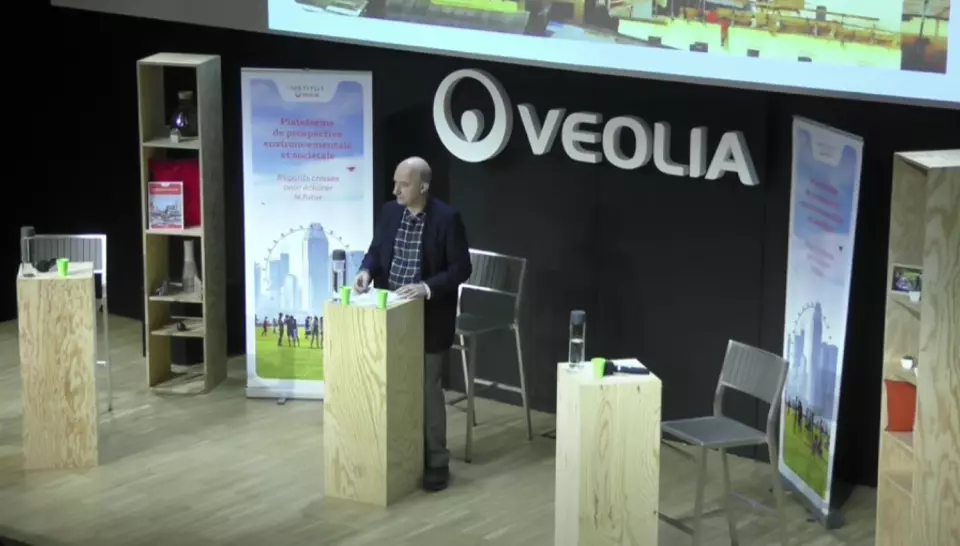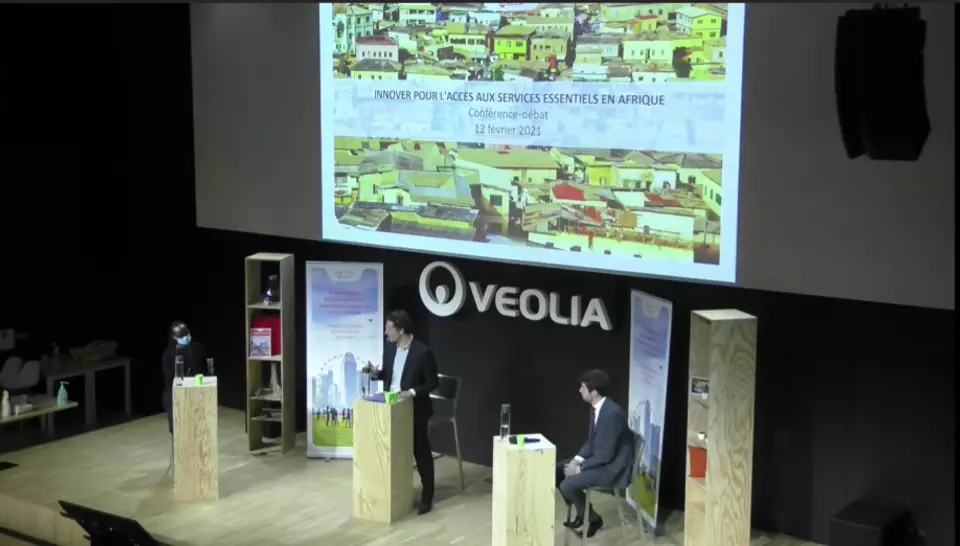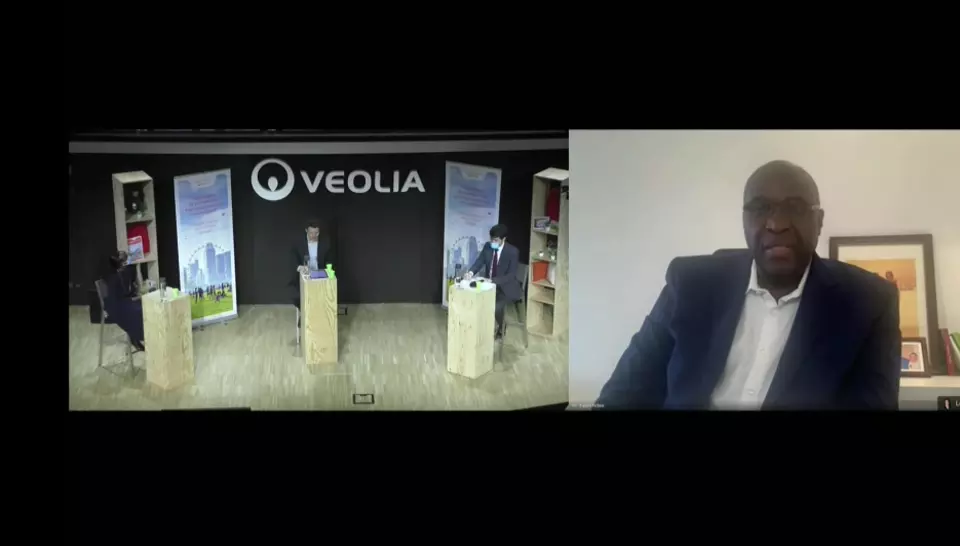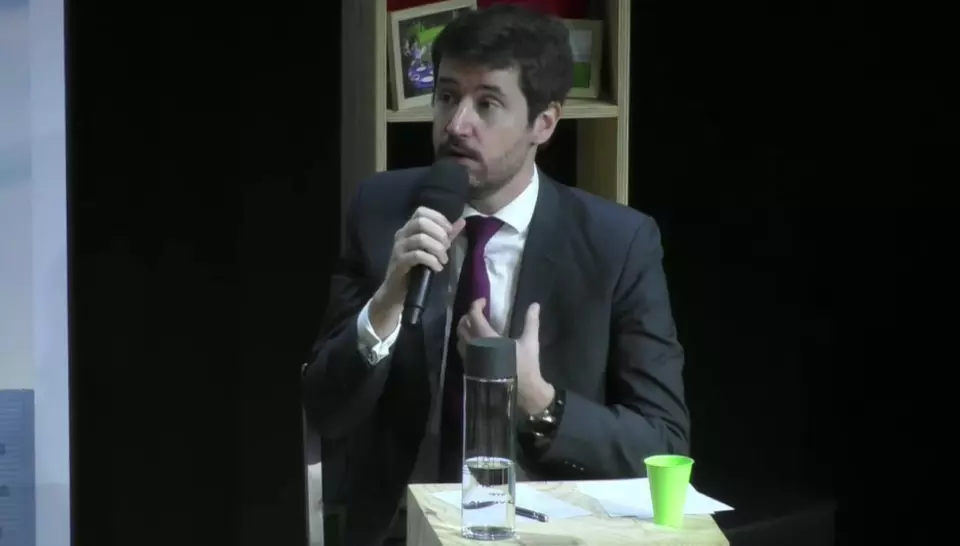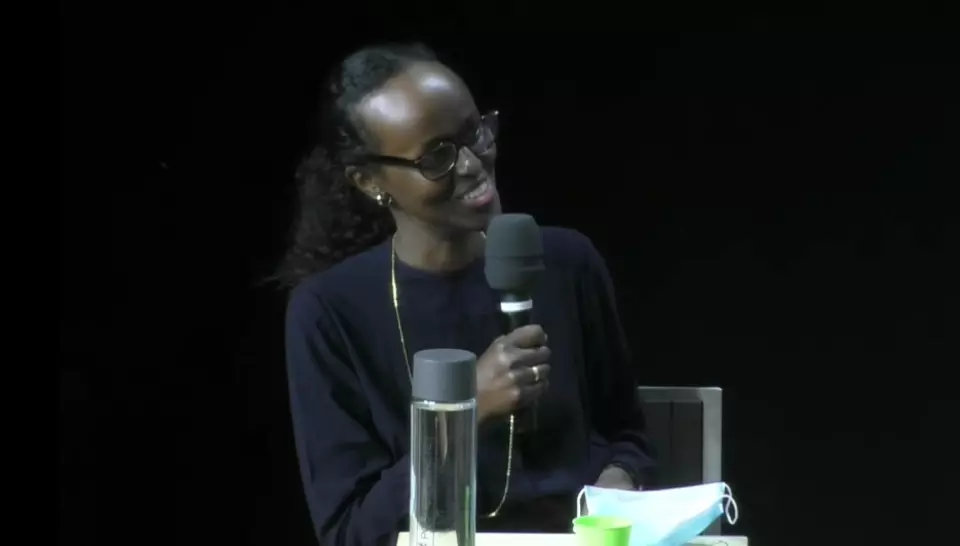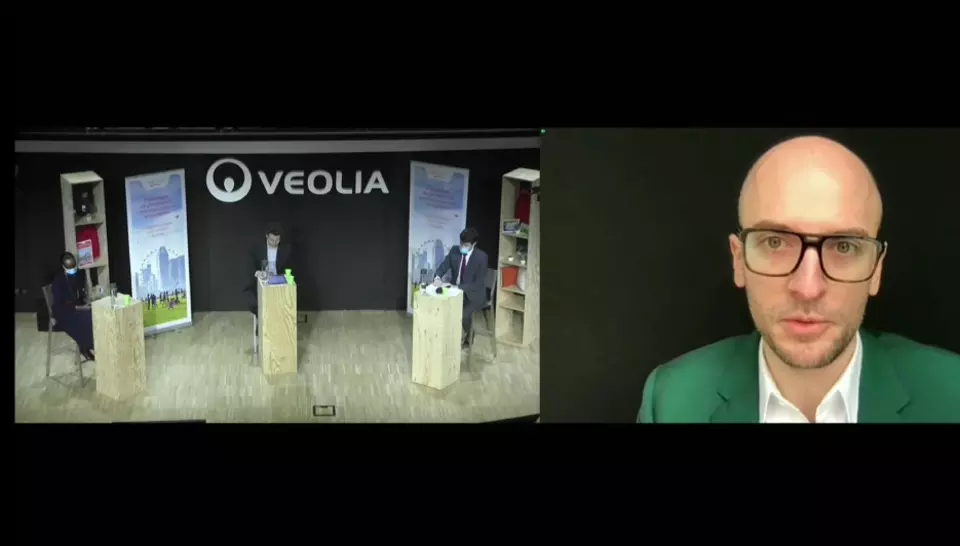
Africa accounts for more than 15% of the global population. The continent is experiencing the highest urban population growth anywhere in the world. This has led to an unprecedented explosion of local innovations to meet the challenge of providing essential services: water, sanitation, waste management and energy. The impact of these innovations will depend on their large-scale deployment. So how do we change scale? At the Group's headquarters in Aubervilliers on February 12, the Veolia Institute shed light on the issue in an online conference organized on the theme covered by the latest issue of its Facts Reports magazine: Water, waste, energy: prospects for essential services in Africa. Four speakers addressed these questions: Fadel Ndaw, water and sanitation specialist at the World Bank; Haweya Mohamed, co-founder of Afrobytes; Max Cuvellier, GSMA Director of Mobile 4 Development; Christophe Maquet, Veolia Executive Vice President Africa and Middle East.
Africa, a land of innovation
Formal utility services are changing in Africa. For example, by rolling out original social connection policies or by recycling wastewater to combat water scarcity. Informal services are being transformed into sustainable economic models.
Africa is blessed with the talents of its people and their ability to create all the services necessary for everyday life, with a variety of solutions in the formal and informal economies. The formal economy does not have a monopoly on economic and social thinking. However, access for all to essential services relies on a successful combination of individual and collective solutions - from low-cost to high-cost. With appropriate governance and financing systems, Africa's future will depend on its innovations and their widespread dissemination," said Nicolas Renard in his introduction.
The challenges of providing universal access to safe drinking water
Fadel Ndaw stated via videoconference from Cairo that only 24% of Africans have access to drinking water that complies with the SDG 6 in Agenda 2030. And to achieve this goal, an investment of $10 to $15 billion per year will be needed.
There are three challenges to meet: safe and securely managed drinking water services, the economic viability of the companies that provide them, and the challenge of harnessing new technologies.
For example, good data governance would improve knowledge of the needs of vulnerable groups, or allow individuals to record their own consumption and adapt it in real time to their income.
In the face of the Covid-19 emergency, water suppliers had to continue to provide drinking water to the most vulnerable groups for handwashing. If water companies do not adapt to the new context through innovative anticipatory strategies, the current crisis and any future health crises could jeopardize the sector's long-term viability, he emphasized.
A race between population growth and innovation
Water stress, population explosion, climate change… a number of African countries are struggling to meet their inhabitants’ drinking water needs. Water is a cross-cutting issue spanning health, hygiene, education, and food. Today, in tackling the Covid-19 crisis, African countries have shown their resilience by innovating: Morocco and Senegal have provided low-cost masks, respirators and tests and African youngsters have mobilized to produce hydro-alcoholic gel.
Everything has changed over the past 20 years. Now civil society is on board. Together, we are jointly building not only technological and organizational innovations, but also social and societal innovations. And we build a trusting relationship with all our stakeholders by taking a long-term approach. For Veolia, innovation must, in particular, serve an inclusive city, i.e. a city in which no category of inhabitants is excluded from urban development. In two ‘third places’ in Niamey and Durban, Veolia promotes women's entrepreneurship and the circular economy. And in order to consume fewer resources, the company recycles wastewater to irrigate green spaces in Morocco and supply drinking water to 300,000 inhabitants in Windhoek, Namibia. By capitalizing on all these innovations, we will be able to bring about an ecological transformation and meet the challenge of climate change, which is hitting this continent with full force, explained Christophe Maquet.
Africa, now a "Mobile first continent"
Between 2016 and 2019, the number of tech hubs on the African continent went from 314 to 618. Thanks to data, start-ups have taken control of waste management issues (household waste, plastics recycling). For example, in South Africa, Egypt and Kenya, 3 start-ups, Rethaka, Reform and Gjenge – all started by women - manufacture schoolbags, fashion accessories and paving slabs from recycled plastics. These innovators actively participate in the continent's economic growth. In addition, "Mega Apps" make numerous mobile payment services accessible to the most disadvantaged people. We can now talk about a "Mobile first continent," said Haweya Mohamed.
There is a need to develop the inclusivity of mobile phone technologies
Two thirds of urban populations in Africa live in informal areas that have full 3G coverage. There are already 500 million mobile payment accounts. For example, for drinking water: with a smart meter, users can recharge their water consumption account via mobile phone. The same principle applies to solar energy in Nigeria where the demand for off-grid electricity is the highest. For sanitation: in Kampala (Uganda), an app is used to improve the sludge collection service. And for plastic waste recycling: Coliba – a company in Côte d'Ivoire – gives anyone who collects plastic bottles points on their smartphone in exchange.
But to deploy these innovations on a large scale, there must be: availability of funding from the start of projects, talent and inclusive networks of skills, viable business models from the initial phase, and a range of collaborations with large companies, municipalities, donors, and NGOs, explained Max Cuvellier.
Figures for essential services in Africa up to 2030
Africa represents more than 15% of the world's population (compared to 7% in 1960). 60% are under 25 and 80% live on less than 5 dollars a day.
- 1.5 billion city dwellers on the continent by 2050
- Improved access to water over the last 20 years in Africa
- Slower progress on sanitation
- Advances in energy access thanks to off-grid innovations
- Waste management, an area for progress over the next few years
- Fast growing innovation ecosystems on the continent: 618 active technological hubs
Facts Reports No. 22 describes innovations in Africa in 3 areas:
The importance of essential services between now and 2030; mapping promising innovations, their governance, collaboration with the informal sector and the circular economy; deployment drivers, user involvement and coalitions of innovative players.
In the magazine's foreword, Mamphela Ramphele - co-founder of the ReimagineSA initiative, co-president of the Club of Rome, and member of the Veolia Institute Foresight Committee - says:
We should imagine the 21st century African city hosting innovative and sustainable essential services. We should also establish harmony between human facilities and sensitive ecosystems for the well-being of local people. And as the Shona proverb says, "those who wear other people's clothes are still naked". It is high time Africa reinvented its cities for itself.
>Find all the articles in Facts Reports No. 22 on “Water, waste, energy : prospects for essential services in Africa”, produced in partnership with the consulting firm Archipel&Co.


